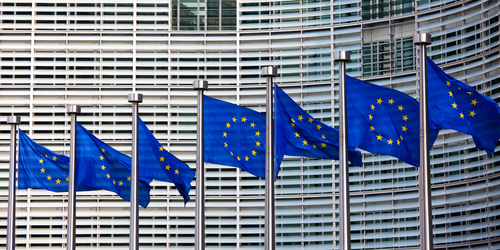
European Union officials have just issued a draft set of rules that would impose uniform trade secret guidelines across the EU, motivated by trade pact negotiations with the United States and concerns about state-sponsored spying, according to The New York Times. Although the leaders of the European Commission have yet to sign off on the proposed rules, they plan to adopt them tentatively on November 27. The rules are then subject to a long legislative negotiating process before they come into force.
The European Union has historically lacked a uniform approach to trade secret protection. While TRIPS and other international agreements set certain minimum standards, specific trade secret laws vary widely amongst the 28 EU member states. Some countries like Germany and Italy have relatively strong trade secret laws, while others do not have any specific trade secret laws. The lack of uniformity makes it possible to exploit differences in trade secret laws to avoid liability for misappropriation and has long frustrated companies doing business in Europe.
According to The Times, the new draft rules provide that “unlawful acquisition, use or disclosure of a trade secret” allows the injured party to seek remedies including recall, seizure, or destruction of the copied goods, as well as the destruction of any documents containing stolen trade secrets. Damages could include “recurring penalty payments in case of non-compliance,” and in appropriate cases could include royalties that the misappropriating party would have had to pay if it had asked for permission to use the trade secrets ex ante. The Commission issued a statement that the regulations would “ensur[e] that in cases of unlawful acquisition, use or disclosure of a trade secret, a sufficient and comparable level of redress across the E.U. is provided.” According to the EU’s statement:
Every company, large or small, in any sector uses confidentiality to gain a competitive advantage, in particular when based on knowledge and innovation. Trade secrets are the source of any first mover advantage. Valuable information that cannot be protected by exclusive rights, such as patents, will only confer its creator with an advantage over competitors if and to the extent that it is not generally known and it is kept confidential. However, companies are increasingly exposed to dishonest practices (such as economic espionage, theft, unauthorised use and disclosure of confidential information), which impact their knowledge capital and competitiveness. Furthermore, there are important differences between the levels of protection offered across the EU for defending trade secrets against unfair practices.
This move follows a number of preliminary steps taken by the European Commission since the beginning of 2012, including:
- Commissioning a 45-page report published in January 2012 analyzing trade secret laws across the EU;
- Hosting a June 2012 conference in Brussels on EU trade secret protection; and
- Launching an in-depth study in April 2013, including a survey of 700 companies, solicitation of public comments, and production of a 150-page empirical report offering legislative recommendations.
While final rules may be a couple years away, uniform legislation directed at trade secrets likely would have a significant impact in fostering innovation and protection of trade secrets in the EU. Lack of uniformity means that EU companies have different levels of ability to invest in innovation and enjoy the returns on their investment.

